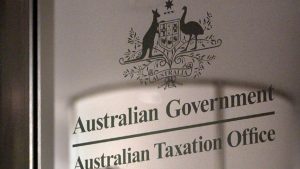ATO Private Rulings could be useful to deal with your tax issues.
 The Commissioner of the ATO may, on application, make a private ruling on the way in which he considers a tax law applies to a taxpayer in relation to a specified scheme. A private ruling may deal with issues relating to liability, administration, procedure and collection, and ultimate conclusions of fact, including valuations that are necessary in dealing with the application of the law .
The Commissioner of the ATO may, on application, make a private ruling on the way in which he considers a tax law applies to a taxpayer in relation to a specified scheme. A private ruling may deal with issues relating to liability, administration, procedure and collection, and ultimate conclusions of fact, including valuations that are necessary in dealing with the application of the law .
Where a prospective transaction is time sensitive, of major commercial significance requiring corporate board consideration, involves complex matters of law or fact and the tax consequences are critical to the transaction, the ATO may accept it into the priority ruling process.
A private ruling may relate to a current, future or past income year or claim period but must specify the income year(s) or claim period to be valid outlines the private rulings system.
The private ruling must be made in writing, must state that it is a private ruling, and must identify the taxpayer to whom it applies as well as the relevant scheme and relevant provision to which it relates . A private ruling that was sent to an applicant stating that it applied to the applicant for the relevant years of income, rather than the rulee on whose behalf the ruling was sought, was subsequently found to be invalid and unable to be objected against.
An application for a private ruling can be lodged by: any taxpayer, their agent (or tax agent), or their legal personal representative; a partner as agent of the partnership (and its partners); or a trustee in regard to the affairs of the trust.
If further information is needed, the Commissioner must request the information. The Commissioner cannot make his own enquiries as to the accuracy of the facts contained in the application. He may, however, make assumptions and consider information other than that supplied by the taxpayer, provided such assumptions or information are made known to the taxpayer before being used.
The ATO has refused to consider applications that, in addition to specific tax provisions, seek clarification of the application of “any other provisions of the Act”. An application can be withdrawn at any time before a private ruling is made.
Objection against private rulings
A rulee dissatisfied with a private ruling may object against the private ruling in accordance with the normal objection procedures unless an assessment relating to the same period to which the ruling relates has issued or the ruling relates to withholding tax that is due and payable. An objection must be lodged before the end of whichever of the following periods ends later:
- the 60-day period after notice of the ruling is served on the person who applied for it
- for most individual or very small business taxpayers — the two-year period after the last day allowed to the rulee for lodging a return in relation to the income year to which the ruling relates, or
- for taxpayers with more complex affairs — the four-year period after the last day allowed to the rulee for lodging a return in relation to the income year to which the ruling relates.
A rulee may apply for an extension of time to lodge an objection. The Administrative Appeals Tribunal (the AAT) may review a decision of the Commissioner refusing such an extension.
If the rulee is dissatisfied with the Commissioner’s decision on the objection, the rulee may apply to the AAT for review of, or appeal to the Federal Court against, the decision. In considering the correctness or otherwise of the objection decision, the AAT or court is limited to the facts as identified by the Commissioner in the ruling as constituting the arrangement or scheme. Where further facts subsequently come to light before the AAT or court, the Commissioner is permitted to request the rulee(s) to apply for another private ruling.
However, the AAT has no jurisdiction to review a private ruling where the Commissioner rules on a different question to the one asked by the taxpayer.
There is effectively no right of appeal if the private ruling relates to an income year which has passed before the appeal has been instituted (or possibly before it has been heard) and the arrangement or scheme in question has not begun to be implemented.
No penalty applies for not following a private ruling. However, there is nothing preventing the Commissioner from issuing an assessment contrary to a private ruling; the question of whether the Commissioner is bound by the private ruling is then dealt with in the objection/appeal process.
